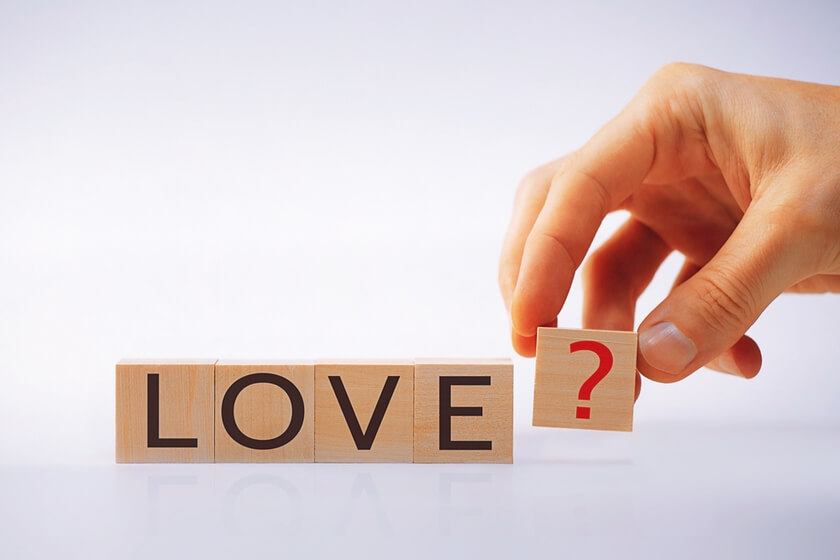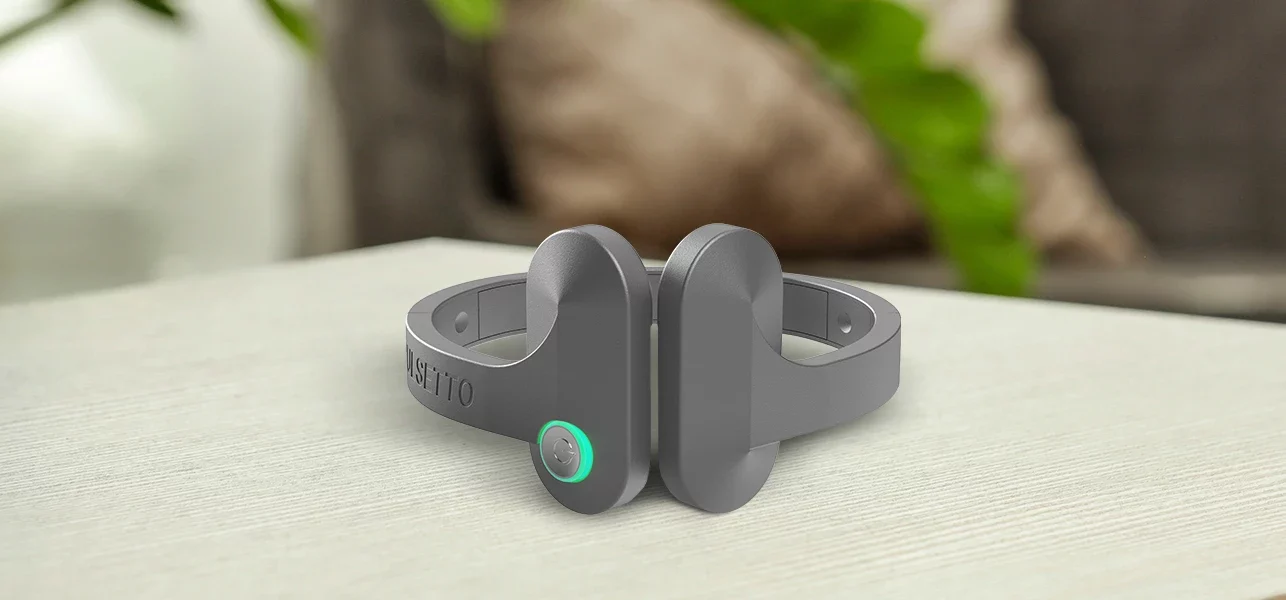How to Stop Being Attached to Someone: 3 Effective Ways

You’re not crazy for being scared of losing something you’re emotionally attached to. After all, love is the source of all attachment, and who wants to lose something they love dearly?
Sadly, not all attachment is healthy, and being attached to someone or something can actually harm our mental health. In this article, we’ll take a look at what unhealthy attachment is and how you can stop being emotionally attached to another person.
This article will also help you learn how to identify your personal feelings and learn self-respect and self-care for your own interests.
How You Can Stop Being Emotionally Attached to Someone
One of the best ways to begin your emotional “detachment” from someone is to identify the emotion that you are feeling, then decide whether it is positive or negative.
If you find that the emotion is positive, you should accept it and communicate it with the person you’re emotionally attached to. Whether it’s a friend or a partner, you can project this positive emotion and help resolve the conflict.
On the other hand, if you find that it is a negative emotion, look deeper into yourself and try to understand why you are feeling the way you do. Who is responsible for this emotion? If things are totally out of your control and there’s no way to resolve the conflict, take some time to reflect, feel the pain, then begin to move on.
Moving on can be extremely difficult, but it’s for the best.
We all have to feel pain, mental health strain, and emotional and psychological trauma in life, but these experiences help shape who we are and how we grow emotionally and intellectually.
What Is Emotional Attachment?
Emotional attachment is referred to as the feelings of closeness and affection that help sustain meaningful relationships over time. Attachment has an important role to play in how we connect with other people.
The earliest bonds that we ever form are with our parents and family members, and these bonds can influence the attachments that we develop to our friends and future relationships as we grow older. We can even become emotionally attached to people even if there is no sexual or romantic attraction involved.
The simple feeling of being close to someone helps increase our bond and sense of connection. This attachment can make us feel comfortable, safe, happy, and even euphoric in their company.

Advertisement
Some emotional attachments are very healthy and normal, but unhealthy emotional attachments can lead to mental health issues and problems with our self-esteem.
There are also various attachment styles, and each has an influence on our relationships and feelings. They are known as avoidant attachment, secure attachment, and anxious attachment, and each of these attachment styles has its own characteristics. Let’s take a closer look at them.
Avoidant attachment
Those with avoidant attachment styles may feel uncomfortable with closeness.
They have an extreme need for self-reliance, and feeling dependent on others can cause them to feel stress. They might keep their distance and ignore other people’s attempts at creating intimacy and closeness.
People with avoidant attachment styles can also find it difficult to meet the needs of others for comfort and security, and when a loved one pulls away, they may actually feel relief.
Secure attachment
People who are secure in their attachment feel comfortable relying on others and letting others get close to them. They are also comfortable with other people relying on them and enjoy being part of the lives of others.
Being securely attached means that one can also be separated, and time spent apart is actually enjoyed.
When the particular person comes back, the dependent partner welcomes them with open arms and feels comfortable again.
Anxious attachment
People who have an anxious attachment style usually want lots of closeness and feel hurt, scared, and unhappy when a loved one is not close with them.
They may attempt to push for closeness because any separation or emotional distance feels like abandonment or rejection to them. These people also often worry that they are not really loved, which usually stems from a lack of self-love.
They repeatedly seek reassurance that they are wanted and therefore can come across as clingy, demanding, and insecure.
When their loved one is not with them, they could feel disappointed and angry with their partners. Then, when their loved one comes back, they may find it hard to trust them again.
Love vs. Attachment
It’s extremely easy to confuse attachment for love and vice versa, but there are a few key differences that set the two apart. Firstly, healthy love relies on healthy attachment to flourish, but as we already know, love and attachment are not the same.
Your emotional connection to friends and romantic partners helps keep these relationships alive and thriving over time. Without attachment, you may even feel the need to look for a new romantic partner when those first few months of intense feelings of love fade in a new relationship, or you may look for a new best friend after a disagreement.
Oxytocin, which is a hormone that boosts feelings of trust and bonding, contributes to the development of long-term love and affection. Essentially, it helps you move through the first stages of attraction and lust into the realm of a healthy relationship.
There are, of course, other hormones that are released during the early stages of romance, which contribute to the euphoria, desire, and tension most people experience when they fall in love.
These emotions fade in intensity after time, but the attachment does persist, which helps you feel secure while promoting lasting feelings of love.

The driving factors
The primary differences between love and attachment lie in the factors that influence and control them.
Generally speaking, we don’t love a person because of what they can provide for us or do. We love them regardless of these things, simply because of who they are and the value they bring to our lives.
Of course, romantic relationships do fulfill certain needs, but relationships that are built on love involve mutual support and giving and actually don’t involve making sacrifices.
On the other hand, attachment can develop when needs for companionship, intimacy, validation, or other needs are put on the back seat and go unfulfilled. It is easy to develop a strong attachment to the first person who fulfills those needs, but that doesn’t mean they’re the right person for you.
Each and every one of us has needs, and we all want to fulfill those needs. There is no shame in seeking a partner who fulfills important needs, but it is essential to understand how to meet these needs ourselves as well.
You don’t want to rush things.
Is Being Emotionally Attached to Someone Bad?
Emotional attachment to a person is not necessarily a bad thing and can be very healthy as long as it stays within its limits.
When the attachment becomes too intense and an emotional dependency forms, the attachment can no longer be considered healthy. Here are a few ways to know whether your emotional attachment to someone is unhealthy:
- You have lost your independence and sense of self
- You constantly seek approval from the other person
- You find yourself incapable of managing your own life
When you have an unhealthy emotional attachment to your partner, you will constantly seek their emotional support, without actually offering any emotional support to them in return.
This imbalance is not only harmful to the dependent partner, but for the other partner as well. They can start to feel drained emotionally, leading to feelings of abandonment, resentment, and even loneliness.
This discontentment is guaranteed to surface after the initial feelings of joy and euphoria wear off, making the relationship toxic and unhealthy until it ends.
How to Stop Emotional Attachments
If you are the kind of person that gets into relationships purely because you hate being single, you’re not only cheating yourself but your partner as well. Healthy relationships never begin because one person can’t meet their own needs.
You need to build a strong foundation for yourself that is based on self-confidence, self-worth, and self-love before you even think of growing emotionally attached to someone or getting into a relationship.
More often than not, emotional attachment occurs when you feel insecure, incomplete, or lonely. You expect a certain person – your partner – to fill that void.
You should think of your relationships as accessories – things that you add to your life to improve their value without taking anything away. When you are confident and independent, you won’t consider the ending of a relationship as the end of the world.
If your partner decides to call it quits and see a new person, you won’t feel disappointed or lost because you’ll still have yourself.
3 Effective Ways to Practice Non-Attachment
Let’s take a look at some of the best ways you can practice non-attachment to make sure that you don’t emotionally attach to someone again.
#1 Meditate
It may seem random to recommend meditation as a method of avoiding attachment, but there’s a method to our madness.
Meditation is about giving ourselves the opportunity to be alone with our thoughts and do some heavy introspection. When we meditate, we block out the outside world for an hour and look only within ourselves – in other words, meditation forces us to confront our flaws.
Try to take the time to meditate and think about the person you are emotionally attached to. Remember what we said earlier about the emotions associated with your attachment – are they good or bad? During your meditation, think about the emotions that are causing your attachment, confront them, and process them.
Meditation also acts as a way to banish negative thoughts and feel connected to ourselves.

#2 Set boundaries
When you are practicing-non attachment, it is important to set boundaries for yourself based on your past experiences with emotional attachment.
Identify the behaviors that you exhibited when you were becoming attached to someone, as well as the behaviors you exhibited when you were emotionally attached to someone, and learn to avoid them.
You should also focus on becoming an independent person, financially, emotionally, and spiritually. Once you have developed your personality, the right people will walk into your life.
What’s more, you have to begin self-discipline practices. You need to be able to take care of yourself and focus on creating an open mindset for yourself.

#3 Try therapy
By now, you know that being emotionally attached to someone is rarely a good thing, but you can’t learn how to avoid attachment if you don’t know the basics of how it works.
Luckily, we’re all born with the ability to be emotionally unattached, so you don’t have to perform any specific techniques or exercises to become an expert. And you don’t have to do it alone.
Sometimes, talking to another person, such as a therapist, about your emotional attachment can be beneficial. Therapists will help you recognize what causes your attachment and help you prevent it from happening in the future.
If you want to be able to talk to a licensed professional therapist at any time, from any location, then consider DoMental.
DoMental is an online therapy platform where you’re able to reach licensed counselors 24/7 via chat, and you will receive responses on a daily basis.

A Word From RD
Emotional attachment is hard. It’s a trap that we can all fall into, and there are so many factors that contribute to forming an emotional attachment.
The first step to overcoming your attachment is to recognize its presence. Many people don’t even realize that they have formed an unhealthy emotional attachment – they’re just stuck in a vicious cycle of pain and heartbreak.
There are so many things that can cause this kind of attachment, such as PTSD, depression, and even personality disorders.
Just know that emotional attachment is very common, and you’re not strange or unhealthy for forming attachments. They happen to the best of us, and seeking help is the best thing that you can do for yourself.
Bottom Line
Stopping an emotional attachment in its tracks is, of course, much easier said than done, and it’s totally normal to feel like you’ll never break out of your patterns. Just know that it is possible and that with a little help, you’ll be able to grow into the best, most independent version of yourself possible.







Comments (0)